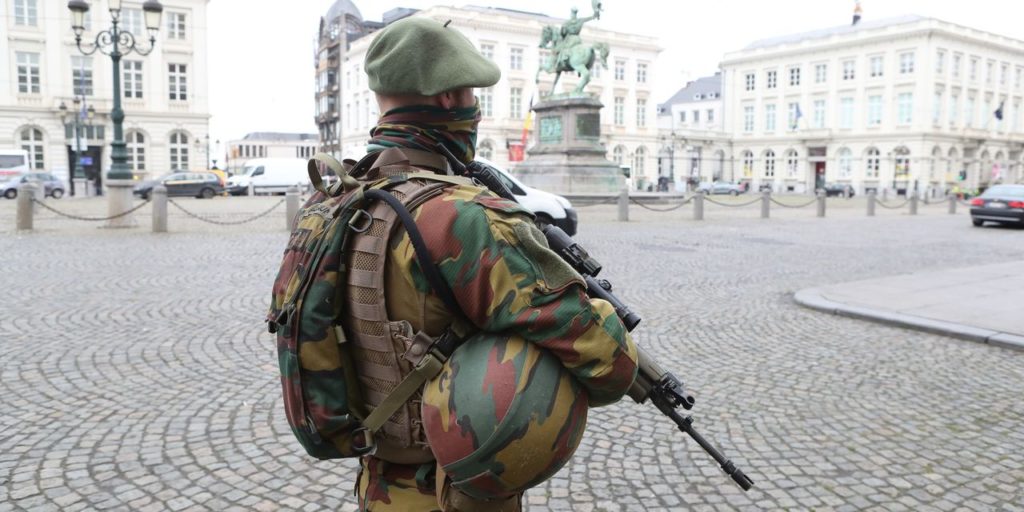Five years ago this month saw the start of the military operation now known as Operation Vigilant Guardian (OVG), which saw the arrival of military patrols on the streets of Brussels and other cities, in response to a growing terrorist threat.
The original trigger for the launch of OVG was the attack in Paris in 2015 on the offices of the satirical magazine Charlie Hebdo, followed by the dismantling of an Islamic terrorist cell in Verviers, in which operation two men were shot dead and one arrested.
Military personnel were deployed to locations considered sensitive, including embassies (in particular the US, the UK and Israel) and religious, particularly Jewish, institutions.
The first military detail activated two days after the Verviers incident and the increase of the terror threat level to 3 by risk analysis organ Ocam, involved 150 soldiers on static patrol. In other words, the soldiers were limited to one location to maintain a discreet presence, because of the psychological and emotional impact of seeing armed military personnel on the streets.
After the attacks on Brussels Airport and Maalbeek metro on 22 March 2016, however, the military presence was increased to 1,800 soldiers and the threat level increased to a maximum of four. In time, that number would come back down to 550,including a separate operation to ensure the security of nuclear installations.
The year 2017 saw a more dynamic approach to patrolling, following the shooting of a would-be suitcase bomber in Brussels Central station, and the knife attack on two soldiers in the centre of Brussels. In that incident, too, the attacker was shot dead by soldiers.
The numbers kept coming down over time, until the 550 ceiling was adopted in mid-2018, to be reviewed month by month. The military establishment, however, would like to see the presence cut further, to 200-300 at most, to allow military personnel more of a family social life – many are barracked away from home for long periods at a time – and to allow them to train.
To that end, defence minister Philippe Goffin pledged in December to reduce the presence to “the lowest number possible”. The job of ensuring security in the longer term will be a decision for the incoming government to take, in negotiation with the home affairs ministry and the police.
The government envisages the military personnel of OVG handing over to a new security division of the federal police made up of 1,600 full-time equivalents including members of the judicial security team, security personnel from Brussels Airport, new hires and a nominal military presence of no more than 150 soldiers.
The figure of €200 million comes from the head of operations at the defence headquarters, Captain Carl Gillis. The figure only includes the salaries of defence personnel, however. The costs of shift premiums, transport and lodging is the responsibility of in inter-departmental anti-terrorism budget.
Alan Hope
The Brussels Times

